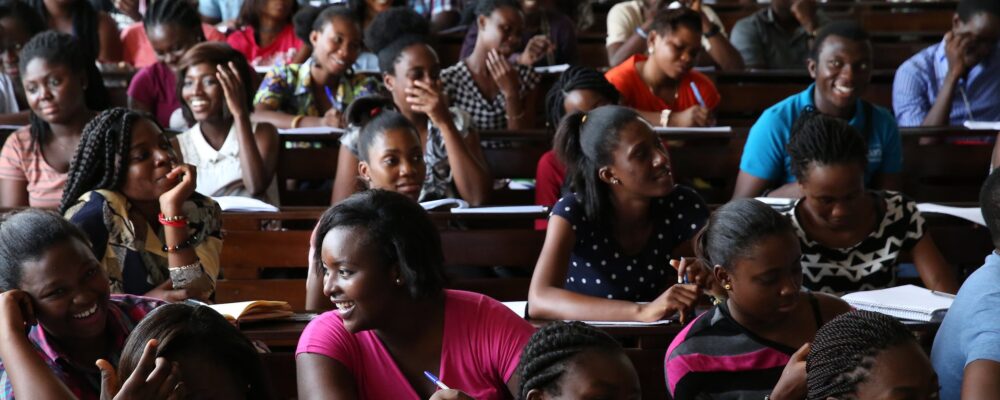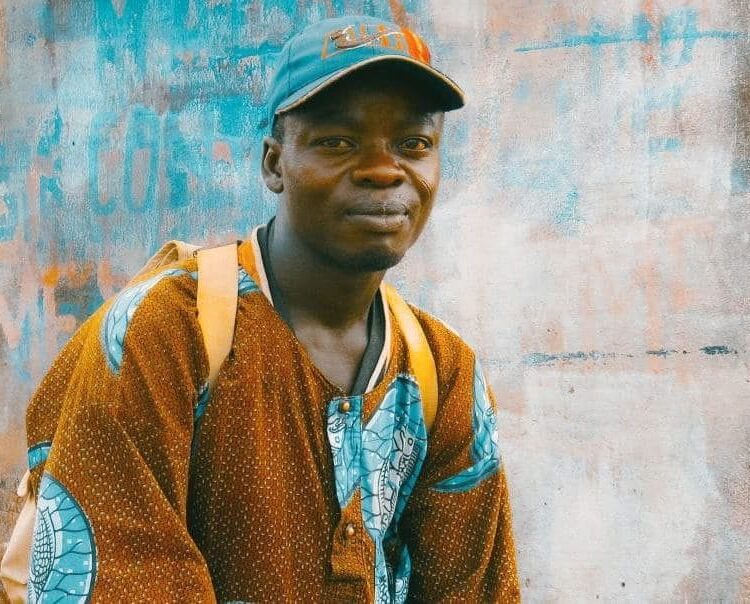
The coronavirus pandemic is expected to have long-lasting social, cultural, economic and political impacts on the whole of societies, including young people, as highlighted by the UN Secretary General’s Report “Shared Responsibility, Global Solidarity”. While a lot of attention has been given to restoring and enabling youth employment and entrepreneurship in order to secure the livelihoods of young Africans, the importance of empowering young people to have their rights and voices heard and to co-lead the response has also been recognised.
So far, youth engagement and action to help fight the pandemic have taken many shapes, from grassroots initiatives led by youth themselves, to organisations and platforms sharing youth opinions and experiences, to involving youth more formally in higher institutions. Young people are increasingly being seen as resourceful players in developing continental and national COVID-19 solutions and response plans. The Dutch Ministry of Foreign Affairs also published a report placing young people at the heart of development cooperation in the region. INCLUDE’s own evidence synthesis papers reiterate the importance of distinguishing youth-specific issues within relevant policies, as well as involving youth more broadly in decision-making and accountability processes, both during the crisis and beyond, in order to help shape their own future.
1. Pandemic Responses
A number of current interventions, both by and for youth, facilitate the active participation of Africa’s youth population in multiple aspects of the COVID-19 response (from fighting the pandemic and related ‘infodemic’ to ensuring continued education and creating income opportunities) and allow their needs and experiences to be heard and recognised. Each week, the United Nations Secretary General’s Envoy on Youth presents 10 young people leading the COVID-19 response in their communities. Below, we share some of the many ways that youth are engaging (or being engaged) in the response.
- Raising awareness and fighting misinformation is an important role that many youth have taken up. A Tweetchat in Francophone Africa with the hashtag #AgirContreCOVID19 has attracted over 90,000 participants and helped to protect against disease spreading. The #STOP-COVID-19 infographics are available in 60+ local African languages to contribute to dispelling myths about the virus. A number of more creative ways of sharing messages have also emerged, including via music in South Africa, graffiti in Kenya, and poetry in the Gambia.
- Young people are supporting their communities in different ways through maintaining access to basic services and providing humanitarian assistance. Many local initiatives are engaged in distributing soap, installing handwashing stations, producing bottles of home-made hand sanitiser and making protective masks. Other youth groups are working together to hand out food packages and sanitation kits, deliver free, anonymous mental health services, and maintain the menstrual health of women and girls in rural areas during lockdown. This reflects their understanding and participation in key issues surrounding the crisis.
- Numerous international organisations are giving platforms to youth voices and further promoting their leadership. The United Nations Population Fund (UNFPA) teamed up with Prezi to launch a video series featuring young people (#YouthAgainstCOVID19) that shares how COVID-19 affects them, along with tips for dealing with sexual and mental health. UNESCO is calling on students, teachers and parents from the UNESCO Associated Schools Network and beyond to tell their stories about how they are coping and continuing to learn. Creating these spaces for youth can help to increase solidarity and to strengthen their participation and influence around key development issues.
2. Impacts on vulnerable groups
Vulnerable groups are at risk of becoming even more marginalised and invisible during this crisis. Power has become more centralized and, in many cases, a focus on overall development and immediate survival has taken precedence over inclusion. Here, we present some of the most at-risk groups, along with some interventions offering ways to prevent further widening of inequalities and help vulnerable youth populations regain a sense of agency.
- More than one in six young people – mostly young women and informal workers – have lost their job since the beginning of the COVID-19 crisis. Destroyed employment, education and training opportunities could push many more young Africans into the informal economy where they are often unprotected economically and socially, and underrepresented politically. This could have long-term consequences unless this group are considered more explicitly and given a stronger voice in policy responses.
- Youth populations living in rural areas and extreme poverty often lack ways of sharing and receiving information on how the crisis and related interventions are affecting them. Youth groups are finding different modes of communication to raise awareness on the coronavirus pandemic in remote communities, for example, by using a bicycle and a car battery-powered loudspeaker in South Sudan, or a car in Uganda. But more needs to be done in terms of feedback and getting messages back up the aid/policy chain around what else is needed for effective responses in rural areas.
- A similar struggle is being faced by youth in fragile contexts, including migrants and refugees, where COVID-19 is increasing vulnerabilities and social tensions. Coalitions of youth are engaged to rapidly share up-to-date information in a refugee camp in Uganda, and have joined forces with frontline workers to fight against the pandemic in conflict zones. The ODI shows how local youth-led responses in fragile contexts can strengthen peace-building efforts and change the wider narrative around youth.
- Girls and young women have experienced an increase in domestic violence since the crisis began. Access to sexual and reproductive health and rights resources and facilities (including contraceptives, pre-natal care, abortions, childbirth and breast feeding) have also become severely restricted. This places young females across Africa at risk of suffering in terms of physical and mental health. Support networks have been created for women, but countries could adapt further strategies being used elsewhere, such as in Spain, where victims of abuse use the code “Mask-19” at local pharmacies to discreetly signal their situation.
- Young women are also facing a greater burden of care, which could hinder their ability to continue their education or to start or maintain a business. The UNCHR recommends that COVID-19 response and post-crisis recovery plans should promote women’s economic empowerment and leadership and address gender inequalities in employment and social protection systems. These plans should be formulated with equal and meaningful participation of young women.
- Young people with disabilities (PwDs) should be considered not just as beneficiaries, but also as agents of change, who can play a key role in supporting campaigns around information sharing and service delivery. Building the capacity of Disabled Persons Organisations and involving them in consultations and decision making are important for combating stigma and discrimination and ensuring that young PwDs receive the care they need. Situation analyses and rapid assessments should include questions related to persons with disabilities and identify barriers to their engagement to ensure that their rights are met.
3. Impacts on inclusive development
Not ignoring the short-term damages, COVID-19 offers a chance for Africa to become more inclusive of youth. It opens doors for youths to participate in policy making and institutional reform, and to harness their skills, knowledge and ambition for positive change. Important youth networks have been identified as a result of the Virtual AU Youth Consultations Series on COVID-19 which convened over 300 youth leaders from 40 countries in 12 virtual sessions. This momentum must continue in order to strengthen youth leadership and allow them a seat at the table to determine their own future.
- The African Union Youth Volunteer Corps launched the video “African Youth fights the COVID-19” on Africa Day 2020 to show appreciation and support for the courage and engagement of youth in the emergency response. This helps to position young people as essential agents of development going forward.
- The World Bank Africa’s ‘Youth Transforming Africa’ (YTA) initiative and the Youth Alliance for Leadership and Development in Africa (YALDA) partnered to organize regular roundtables on development topics to allow dialogue among Africa’s youth and prepare some youth-grown solutions to influence policy making in Africa.
- Young people are gradually being included in a more direct and impactful way at higher levels of governance. For example, a young representative from the Youth Café actively participated in addressing policy-makers at the African-European parliamentary initiative COVID-19 conference. The Nigerian government is also engaging youth in debates about the fight against COVID-19.
- Parallel to their survey on youth employment during COVID-19, the Decent Jobs for Youth (DJFY) initiative by the ILO launched the #MyVoiceMyFuture campaign and blog series ‘Youth Rights & Voices’. The blog features contributions of youth representatives and youth employment experts, and discusses action-oriented policy responses and solutions to prevent exclusion of young people going forward.
We are open to any input and suggestions that could contribute to this debate. We invite you to send us an email.
